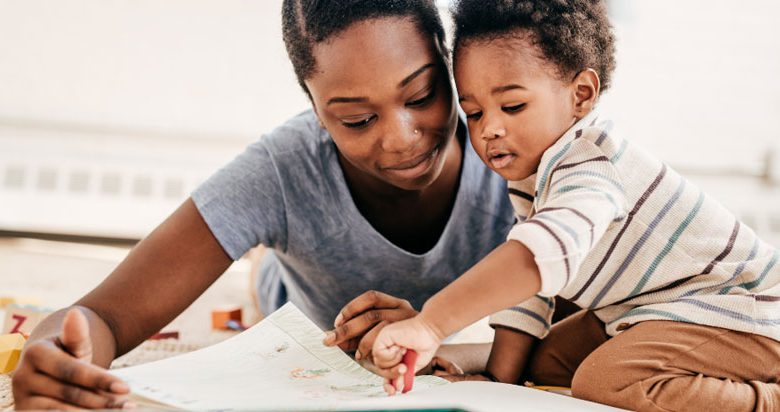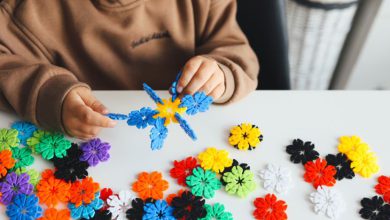The Magical Benefits of Reading to Your Child

The Magical Benefits of Reading to Your Child
First thing’s first: We are neither confirming nor denying the existence of magic.
BUT … if you’ve ever had the privilege of watching what happens when you introduce kids to books, you may wonder if something magical is happening.
Amazing things occur in the brain of a child when they are introduced to books and storytelling at a young age. And when we say young, we mean young. As in “read them a book 10 minutes after they are born” young.
So what are these benefits we keep raving about? Glad you asked …
Benefits of Reading to Children
Let’s start by stating that kids are somewhat magical themselves. Research has shown that babies’ brains prepare to speak months before they say their first words.
That being said, they need to constantly hear words so they know which ones to say. Enter reading.
According to the Head Start Early Childhood Learning & Knowledge Center, reading with your child:
- Expands their vocabulary. It’s not your fault you never say things like “allosaurus” or “nocturnal.” However, that doesn’t mean your child shouldn’t hear the words. Books often include words that adults wouldn’t normally use. In fact, one study estimated that children who are regularly read to before entering kindergarten are exposed to 1.4 million more words than children who aren’t read to during those years. WHOA.
- Supports word learning and preliteracy skills. Book reading gives you the perfect back-and-forth interactions that you’re looking for so your kid can learn the words that will become foundational as they read and learn language.
- Increases the quality of language they encounter. It’s fine to admit that you aren’t a wordsmith. The quality of the words found in books is probably going to be higher than the quality a child hears in everyday conversation. A 2013 study showed that babies score higher in language skills when they have parents who read and talk to them frequently.
- Helps with sound recognition. The sing-songy way in which many children’s books are written actually helps your little one identify individual sounds.
Other Reading Benefits
Still not convinced reading is a tad magical? Here are some more benefits to reading with your children.
- Reading prepares kids for academic success. The University of Michigan lists five early reading skills that are essential for development. Guess what helps them all? You’ve got it. Reading.
- Reading helps with listening skills. Listening is a skill kids have to acquire before they can read. Makes sense, right? Understanding a story read aloud involves a certain level of comprehension, and that comprehension will help your child in all kinds of ways.
- Reading boosts creativity. Reading not only opens childrens’ minds to the world around them (nonfiction), it also introduces them to fantastical worlds and made-up places (fiction). Both help expand a child’s creativity beyond what they could develop on their own.
- Reading helps children make connections to the world around them. Especially when dealing with infants and toddlers, taking the time to look at a picture, ask a question, and share discoveries is an important activity. Why? Because those moments help kids make connections between what they read and the world around them. Here are a few examples.
- Hey! That dad takes his kids to the park, too!
- Look, their mom works in a big office just like your mom does.
- That person sure is grumpy. Why do you think they feel that way?
- There’s a wolf in this story! Did you know that wolves and dogs are really similar?
Bilingual Babies
In an increasingly diverse world, children are exposed to multiple languages in more and more environments. Whether it’s at home, in school, or on television, kids have a much greater chance of becoming familiar with different languages than in year’s past.
If you’re worried about which language to use when reading with your child, the answer is simple: whatever language you feel most comfortable speaking. That makes storytime more fun for everyone because you, the storyteller, aren’t worried about reading.
Plus, there’s all sorts of dual-language books at libraries that can help your child (and you!) learn a second language. If you want to dip your toes into Spanish, Mandarin, or any other language for that matter, there are great books that will help you and your child become familiar with it.
And don’t worry if English isn’t you or your child’s first language. Being bilingual will help your child learn any language when they start school.
Don’t Kill the Joy
In all your newfound exuberance, make sure to check in on how your child feels about the pace you’ve set for their reading schedule.
Mary Leonhardt, author of “Keeping Children Reading,” says, “Don’t do anything that will make reading seem like a chore. It’s better to have your son do just a little bit of reading at home at first — he’ll read more later, trust me — than to have him read a lot but only when you’re forcing him.”
Keep in mind that you may discover reading challenges as you read more with your child. Forcing them to read certainly won’t help — and will almost definitely hurt — their chances of having a good relationship with words and reading.
Another thing that could make reading less fun is forcing your child to read a certain way or in a certain place. If your toddler daughter is a mover, let her wiggle off your lap and do other things in the room while you read. If you started reading on the couch but your 5-year-old son wants to read sprawled out on the floor, go for it! And if your little infant is more interested in turning pages and chewing on the corner of their board book than they are actually reading it, let them do it.
Especially when they are young, reading should be fun for your child. If it’s a chore, find a way to make it fun again.
Make a Librarian’s Day
One of the best parts about making sure to read with your children is that the hard work of finding the books can be done for you. One trip to your local library is all you need to get started. Just watch the librarian’s face when you ask, “Can you help me find books to read with my kids?” Believe us, they’ll take it from there. You may even see them do this …
Reading, just like math, is all around us. But just because it’s everywhere doesn’t mean kids will pick it up on their own. For reading to really make an impact, it’s important for parents to make an intentional effort in teaching their little ones about it. Thankfully, reading — and the stories that come with it — can also create some truly magical memories that you and your children can share together.





